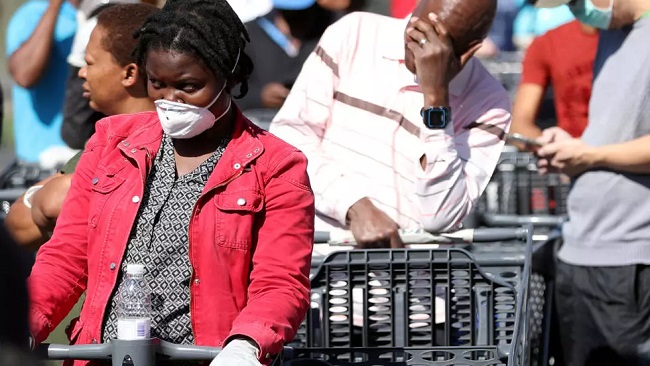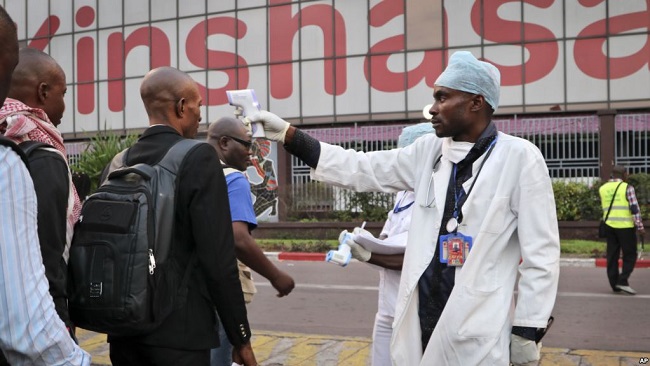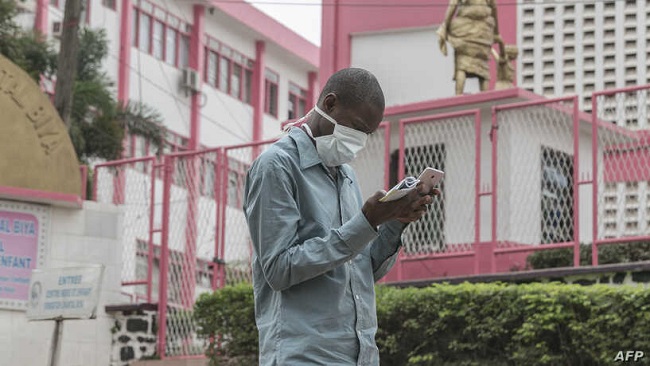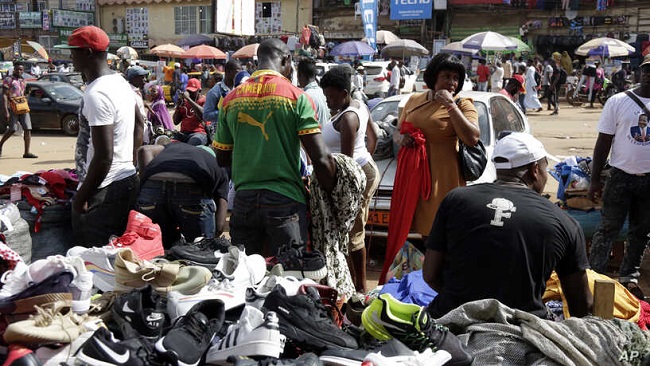25, March 2020
UN launches virus aid plan, says all of humanity at risk 0
The coronavirus pandemic is threatening the entire human race, the United Nations warned Wednesday as it launched a humanitarian response plan featuring an appeal for $2 billion to help the world’s poorest and most vulnerable people.
“COVID-19 is threatening the whole of humanity -– and the whole of humanity must fight back,” Secretary General Antonio Guterres said in announcing the initiative.
“Global action and solidarity are crucial. Individual country responses are not going to be enough.”
Just last week, as the novel coronavirus spread to more and more countries, killing thousands and infecting many more, Guterres warned that unless the world came together to curb the spread, millions of people could die.
The plan “aims to enable us to fight the virus in the world’s poorest countries, and address the needs of the most vulnerable people, especially women and children, older people, and those with disabilities or chronic illness,” said Guterres.
If fully funded, “it will save many lives and arm humanitarian agencies and NGOs with laboratory supplies for testing, and with medical equipment to treat the sick while protecting health care workers,” he added.
The amount of money sought by the plan is small compared to the $2 trillion that the US Congress is poised to approve as a rescue effort for devastated American consumers, companies and hospitals as the world’s largest economy grinds to a sudden halt.
– Two scenarios –
The UN plan is designed to last from April to December — suggesting the world body does not see the health crisis abating any time soon.
The exact total of $2.012 billion is supposed to flow in in response to appeals that various UN agencies, such as the World Health Organization and the World Food Programme, have already made.
Guterres said that in parallel, humanitarian aid provided yearly by member states to help 100 million people around the world must continue.
Otherwise, he said, the coronavirus pandemic could lead to rampant outbreaks of other diseases such as cholera and measles, as well as higher levels of malnutrition.
“This is the moment to step up for the vulnerable,” Guterres said.
As spelled out in an 80-page booklet, the UN plan will be carried out by UN agencies that work directly with non-governmental organizations (NGOs).
It will be coordinated by the UN under-secretary general for humanitarian affairs, Mark Lowcock of Britain.
The money will be used for a variety of purposes: to set up hand-washing facilities in refugee camps, launch public awareness campaigns and establish humanitarian air shuttles with Africa, Asia and Latin America, the UN says.
The exact needs of some countries are still being identified.
The plan names 20 or so as deserving top priority for aid, including some enduring war or some degree of conflict, such as Afghanistan, Libya, Syria, the Central African Republic, South Sudan, Yemen, Venezuela and Ukraine.
But countries such as Iran and North Korea are also analyzed in the booklet.
The plan foresees two general scenarios as to how the pandemic might evolve.
Under the first, the pandemic is brought under control relatively quickly as its rate of spread slows over the course of three or four months. This, it says, would allow for a relatively swift recovery in terms of public health and the economy.
But under the second model, the pandemic spreads quickly in countries that are poor or developing, mainly in Africa, Asia and parts of the Americas.
“This leads to longer periods of closed borders and limited freedom of movement, further contributing to a global slowdown that is already under way,” said the UN.
Source: AFP





























25, March 2020
Coronavirus and the race to save jobs: European governments step in to pay wages 0
Tens of millions of jobs are now at risk from the coronavirus pandemic, with entire industries being shut down to keep the virus from spreading. Governments across Europe are spending billions on wage subsidies in a desperate effort to save jobs and cushion the economic blow.
A spike in unemployment is a triple threat to a country’s economy: consumer spending and tax revenues drop, while social welfare costs skyrocket.
The International Labour Organization estimates that almost 25 million jobs could be lost worldwide due to the coronavirus pandemic.
Governments across Europe are using public money to try to secure jobs through the crisis by paying or reimbursing companies that have seen their revenues dry up. Their goal: to keep employees on the payroll so they can resume working when businesses re-open.
Here are some of the plans to help individuals that have been announced so far.
France
As the number of cases of the virus began to rise, the French government extended its system of chômage partiel, or partial unemployment.
When a company is forced to reduce or suspend work, it can apply for state funding of 70 percent of an employee’s gross salary, to a maximum of €6,927 per month.
As of March 24, 730,000 workers were being paid under this scheme. The finance ministry has already set aside €8.5 billion in funding but that amount is expected to rise.
With schools and crèches (nurseries) closed, the French government is also giving paid leave to parents who cannot work from home and who are responsible for children younger than 16.
The annual winter embargo on evicting tenants from residential properties has also been extended to May 31.
Germany
Berlin has expanded its short-time allowance, or Kurzarbeitergeld, to include companies that cut working hours as a result of the coronavirus.
It pays at the same level as unemployment benefits: Up to 67 percent of net wages lost due to shorter hours, to a maximum of €6,700 per month.
Tenants who are unable to pay their rent will be protected from eviction until September 30, although back rent will be owed when the economic situation improves.
United Kingdom
The Coronavirus Job Retention Scheme will see the UK government reimburse companies for 80 percent of gross salaries up to a maximum of £2,500 (€2,714) per month.
This can be backdated to March 1, with the system in place initially for three months.
Finance Minister Rishi Sunak said he was “placing no limit on the amount of funding available for the scheme”.
Ireland
A new temporary wage subsidy will allow affected companies to recoup up to 70 percent of salaries from the Irish government to maintain current employment levels, with a maximum of €410 per week (€1,777 net per month).
Special arrangements have been made for the childcare sector, which include the state paying all the wages of crèche workers as well as contributing to other running costs. The aim is for parents to be able to stop paying fees and still be guaranteed a place when the crèche reopens.
Italy
As part of the economic package adopted on March 16, Prime Minister Giuseppe Conte’s government extended a series of “social shock absorbers”.
They include paying up to 80 percent of an employee’s salary for a period of nine weeks to a maximum of €1,130 net per month.
Self-employed people have also been awarded a one-off payment of €600.
Spain
The existing provision for temporary layoffs, known as ERTE, has been expanded to cover businesses affected by the virus. Up to 70 percent of salaries will be paid, with a maximum of €1,412 per month.
The Spanish government has also ordered utility companies to maintain services to all “vulnerable” households, even if they are unable to pay their bills.
Trouble ahead
These temporary packages come at a steep cost to the taxpayer but, if successful, they will help economies recover more quickly when the outbreak recedes.
Economists are nonetheless warning of a deep recession to come. A key economic survey published by IHS Markit on Tuesday showed the largest collapse in eurozone business activity on record.
And despite the quick moves to shore up economies, some warn it may not be enough.
So far, “policymakers’ efforts to date have failed to brighten the darkening picture”, said IHS Markit chief business economist Chris Williamson, in a statement accompanying the survey results.
Bell, of BMO Global Asset Management, wrote in an economic update on Tuesday that government measures “will do no more than blunt the blow to economies and families”.
Source: France 24